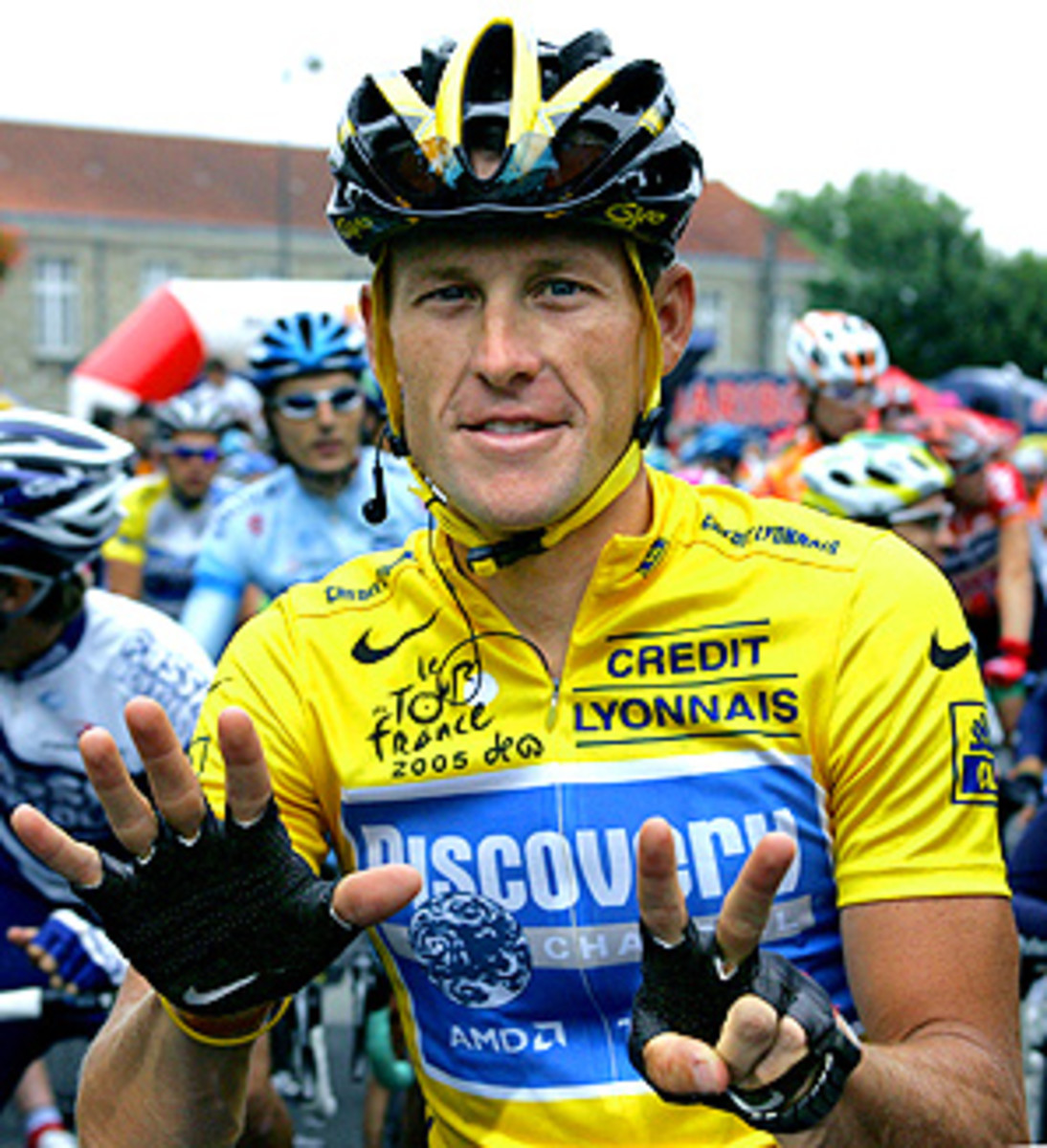Lance Armstrong's battle against doping allegations is not over yet
It was the then-37-year-old Lance Armstrong in the crowning moment of his comeback. Armstrong didn't win that Tour, which ended the following day in Paris. But with that gutsy ascent of the Ventoux, he ensured his place on the podium. I was one of half a million people on the mountain that day, and spoke to Armstrong briefly at the summit. I was no less impressed by his third place at the '09 Tour than by any of his seven wins in the race. I agreed with the L'Equipe Headline over that photo: Chapeau, Le Texan.
That's why some excerpts from the U.S. Anti-Doping Agency's recent, 15-page "charging letter" to Lance Armstrong, detailed in yesterday'sWashington Post were more surprising and disappointing to me than others. According to the letter, "Armstrong's doping is further evidenced by the data from blood collections obtained by the UCI" -- the sport's governing body -- "in 2009 and 2010. This data is fully consistent with blood manipulation and EPO use and/or blood transfusions."
Just as I'd once been so certain that Armstrong had won his seven Tours fair and square, I was really confident that his comeback was clean.
And it was, according to Armstrong, who assured the world in a statement on his website that "I have never doped," and reminded us that he has passed more than 500 drug tests. (One of his lawyers, Bob Luskin, later rounded that up to 600.)
The USADA letter alleges that Armstrong and five former associates -- three team doctors, a trainer and team manager Johan Bruyneel -- engaged in a massive doping conspiracy from 1998 to 2007, and that "the witnesses to the conduct described in this letter include more than ten (10) cyclists."
In a controversial decision last February, U.S. Attorney Andre Birotte Jr. dropped a long-running inquiry into doping in cycling. "These are the very same charges and the same witnesses that the Justice Department chose not to pursue after a two-year investigation," Armstrong points out, in his statement. Are they?
While USADA CEO Travis Tygart declined an interview request, the World Anti-Doping Agency did weigh in, noting in a statement that the proceedings against Armstrong "are the result of evidence gathered by USADA under its mandate and does not include evidence obtained by the investigation of the US Department of Justice."
Those ten former teammates cited by USADA? The "multiple riders with firsthand knowledge" of Armstrong's use of EPO, blood transfusions, testosterone and masking agents? They're liars, according to Armstrong, who also excoriated USADA for "its malice, its methods, its star-chamber practices, and its decision to punish first and adjudicate later," which are "at odds with our ideals of fairness and fair play." The hashtag following his Twitter post linking to his statement: #unconstitutional.
Those fighting words are belied by the interview he gave to Men's Journal last month, which prefigured the USADA charges, and in which he seemed almost at peace with the idea of being stripped of one or more of his Tour titles:
"In my mind, I'm truly done. You can interpret that however you want. But no matter what happens, I'm finished. I'm done fighting. I've moved on. If there are other things that arise, I'm not contesting anything. Case closed."
What then? USADA is in charge of anti-doping efforts in Olympic sports. While it can't bring criminal charges against Armstrong, it does have the power to suspend him from competing in triathlons, and to strip him of awards.
Armstrong has been competing as a professional triathlete this year -- he'd won his last two half Ironman events, in Florida and Hawaii -- in hopes of qualifying for the 2012 World Ironman Championship in Kona. That ambition is now in serious doubt. The Ironman is owned by the World Triathlon Corporation, whose CEO, Andrew Messick, said in a statement, "Our rules, as stated in the WTC Professional Athlete Agreement and Waiver, dictate an athlete is ineligible to compete during an open investigation. Armstrong is therefore suspended from competing in WTC-owned and licensed races pending further review."
What of Armstrong's seven Tour titles? WADA has imposed eight-year statute of limitation for doping charges; USADA's letter arrived a month and a half before that eight-year window closed on the Texan's final Tour win in 2005. Yet, all seven of those titles could be in jeopardy. As USADA argues in its letter, according to the Post, "Evidence of banned acts outside of the eight-year limit can be used to corroborate evidence within the limit, and the statute of limitations can be waived when the alleged violations were fraudulently concealed."
"It doesn't matter anymore," Armstrong told Men's Journal, when asked about the possibility of being stripped of his Tour titles. "I don't run around bragging, feeling like I have to be a seven-time Tour de France champion. I worked hard for those, I won seven times, and that's great. But it's over."
If Armstrong truly is done fighting, than it probably is over. (To whom would the Tour award those vacated championships? Almost everyone Armstrong has ever shared the podium with is an admitted, or accused, doper.) Yet it's almost inconceivable to think of him going down without a battle. He and his retinue of lawyers have until June 22 to supply written materials to USADA's review board, which will then decide whether to proceed to an arbitration hearing.
Stacked against the testimony of all those ex-teammates, he may find the going even tougher than on the slopes of his old nemesis, the Ventoux.





